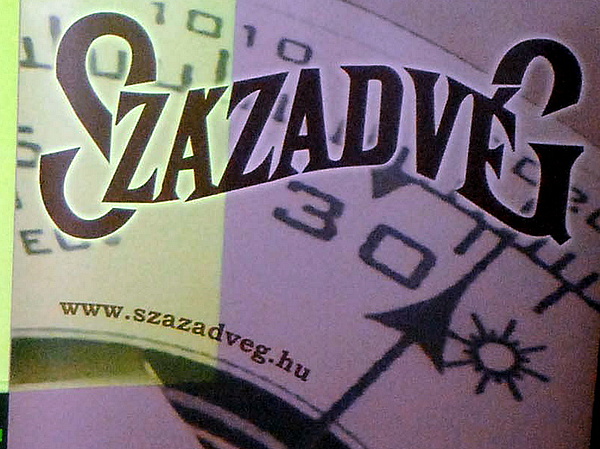The https://english.atlatszo.hu use cookies to track and profile customers such as action tags and pixel tracking on our website to assist our marketing. On our website we use technical, analytical, marketing and preference cookies. These are necessary for our site to work properly and to give us inforamation about how our site is used. See Cookies Policy
The curious case of Századvég’s government contracts
Since December 2012, the government has failed to reveal what work was undertaken by Századvég Gazdaságkutató Zrt. which cost the taxpayer almost 5 billion HUF. The company was created shortly before the 2010 elections, involving people like András Giró-Szász (former government spokesman), Csaba Lantos (former owner of Heti Válasz), Kristóf Szalay-Bobrovniczky (former CEO of Heti Válasz) and even Árpád Habony, the communication guru of Fidesz. Tamás Mellár, former principal researcher at Századvég now stated: “the whole institute is a money laundrette”.
The five billion HUF contract is not Századvég’s only work financed from public money. For example, they will be lobbying for Hungary’s better reputation in the United States and Canada in the upcoming 4 years, for the net sum of 1.4 billion HUF. They may well have further assignments financed by public money.

In a comparable case, a consortium of NGOs led by the Ökotárs Foundation was investigated by the prosecutor, by the police and by the Government Control Office (KEHI) in connection with funding received from the Norvég Civil Alap (Norwegian NGO Fund). In 2013, the consortium supported 128 Hungarian NGOs with more than a billion HUF. In effect, one Századvég contract is worth in the region of 250 “Norwegian Civil” projects. Or, if we only consider the macro projects, this would still be equivalent to roughly 160 long term projects. The grantees of these macro projects generally cooperate with 10 to 15 other organizations, so that the amount each organization directly benefits is reduced.
In fact, no information at all is available about what Századvég does for vast amount of money that it receives. According to Eötvös Károly Intézet, one page of one of its reports costs 470,000HUF. Although Századvég challenges this calculation, even one tenth of the amount is equals to the monthly ‘wage’ for communal labour, considered a living wage by the government.
All things considered, there are very good reasons to investigate Századvég, especially given that the billions of HUF given to Századvég are from Hungarian taxpayers, unlike in the case of Norwegian NGO Fund.
Officially, we have the right to know all of this. According to the law on freedom of information, any organisation which establishes financial or business relations with any governmental body is obliged to reveal details concerning those relationships. Such information is considered in the public interest and should be made available to anybody requesting it. It is also a legal requirement that data related to the budgets of central and local municipalities are made available in the public interest. In that sense, there should be no question that this refers to information concerning what taxpayers’ money is spent on, what the Hungarian state receives in return for the public money it spends?
Two trials have already been lost by the Ministry of National Development, as they were unable to provide the data requested. Should the same information be requested from Századvég, it would be even more interesting if they too were unable to supply the data from these billion-forint contracts. All cases will be discussed in terms of their status as ‘pre-decision’ information in government policy. Though it would be even more curious if all the work of Századvég were classified in this way, and there had in effect been no government decision enacted based on their very extensive and costly work, but all remains in the ‘pre-decision’ category.
And yet, so far we haven’t even asked for much. Put simply, we have requested a copy of every single contract financed from public money since 1st of January 2010, and more specifically for the verification of completed payments along with the list of all documents transferred during completion. Our aim is to examine how billions of taxpayers money has been spent, and to do it in the same detailed manner as KEHI has done during its investigations of cases concerning buying rubber bands and socks.
Original text by Balázs M. Tóth. Translation by atlatszo.hu volunteer Gábor Vas.
Share:
Your support matters. Your donation helps us to uncover the truth.
- PayPal
- Bank transfer
- Patreon
- Benevity
Support our work with a PayPal donation to the Átlátszónet Foundation! Thank you.
Support our work by bank transfer to the account of the Átlátszónet Foundation. Please add in the comments: “Donation”
Beneficiary: Átlátszónet Alapítvány, bank name and address: Raiffeisen Bank, H-1054 Budapest, Akadémia utca 6.
EUR: IBAN HU36 1201 1265 0142 5189 0040 0002
USD: IBAN HU36 1201 1265 0142 5189 0050 0009
HUF: IBAN HU78 1201 1265 0142 5189 0030 0005
SWIFT: UBRTHUHB
Be a follower on Patreon
Support us on Benevity!

